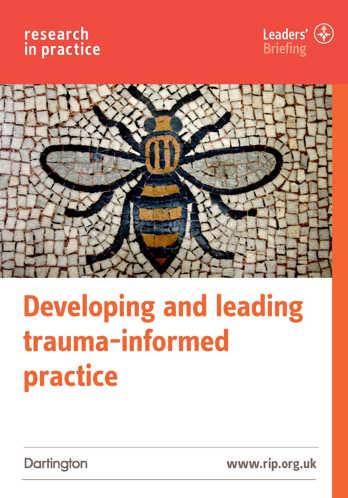Developing and leading trauma-informed practice: Leaders' Briefing (2018)
Repercussions of trauma experienced in childhood may persist through adolescence and into adulthood. The intention of trauma-informed practice is an increased understanding of the ways in which present behaviours and difficulties can be understood in the context of past trauma.
The approach offers a framework for a common set of values, knowledge and language across services (eg, social care, health, education, housing and criminal justice). Trauma-informed approaches (TIAs) can also be applied to understanding and protecting the workforce from secondary or vicarious trauma as a consequence of the emotional demands of their work.
Professional Standards
PQS:KSS - Lead and govern excellent practice | Creating a context for excellent practice | Designing a system to support effective practice | Promote and govern excellent practice | Shaping and influencing the practice system | Effective use of power and authority | Emotionally intelligent practice supervision
PCF - Professionalism | Values and ethics | Diversity and equality | Intervention and skills | Contexts and organisations

